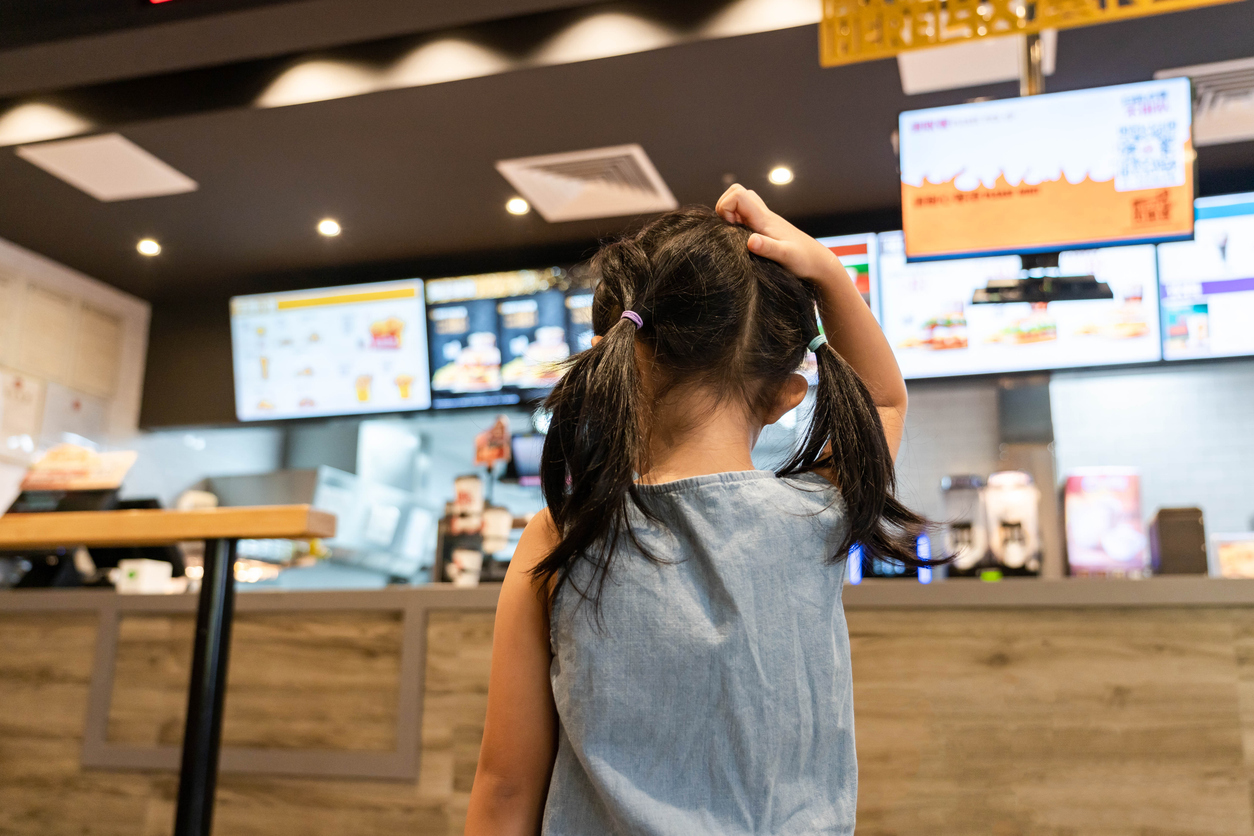With AI, restaurants can analyze customer data to gain valuable insights into preferences, enabling tailored promotions and personalized menus that enhance guest satisfaction. Automation of tasks such as reservations and order management streamlines operations, freeing up staff to focus on providing exceptional service. This technology empowers restaurants to deliver unique dining experiences that resonate with patrons, ultimately fostering loyalty and driving growth.
Embracing AI in restaurant marketing improves efficiency and positions, making it essential for modern dining establishments to leverage this innovation for success.
Understanding AI In Restaurant Marketing
Artificial Intelligence (AI) significantly impacts various industries, including restaurant marketing. AI works by analyzing vast amounts of data to uncover customer trends, preferences, and behaviors, enabling restaurants to make data-driven decisions.
For instance, AI can sift through customer feedback, online reviews, and purchase history to identify what dishes patrons love or what promotions resonate best. This insight allows restaurants to tailor their marketing strategies effectively. Moreover, AI automates repetitive tasks such as email campaigns, social media posting, and creating targeted ads, saving time and reducing human error.
Why Is AI Essential For Restaurant Marketing?
AI restaurant marketing enables businesses to adapt quickly to consumer trends and preferences. With AI's capabilities, restaurants can optimize their marketing strategies, enhance customer experiences, and drive growth.
Optimized Marketing Campaigns
AI can conduct A/B tests to identify which marketing messages and visuals resonate best with customers, leading to more effective campaigns. By analyzing demographic data, AI helps restaurants target specific customer segments with customized advertisements, significantly increasing conversion rates. This tailored approach ensures that marketing efforts reach the right audience at the right time, maximizing impact.
Improved Data Analysis
Data lies at the heart of modern marketing, and AI takes customer analytics to new heights by quickly processing vast amounts of information. With predictive analytics, restaurants can anticipate trends and offer timely promotions, keeping their offerings relevant. These data insights empower restaurants to craft compelling, data-driven marketing strategies that lead to higher conversion rates, leveraging robust data analytics to their advantage.
Enhanced Marketing Automation
Marketing automation streamlines repetitive tasks, and AI optimizes this process for restaurants. Utilizing AI for automation brings numerous benefits, including time savings, improved accuracy, and better ROI on marketing efforts. With AI managing routine tasks, restaurant teams can focus on strategic initiatives, allowing them to maximize their marketing potential and achieve a more substantial return on investment.
Optimized Pricing Strategies
Pricing significantly influences customer decision-making, and AI enables dynamic pricing strategies. By adjusting prices based on real-time factors such as customer demand, time of day, or competitor pricing, restaurants can maintain competitiveness and profitability. AI-driven pricing strategies give restaurants a crucial edge, enhancing customer satisfaction while maximizing revenue.
Build Customer Loyalty
AI enhances loyalty programs by tracking customer behavior, offering personalized rewards, encouraging repeat visits, and fostering long-term relationships. Additionally, AI tools analyze customer feedback and reviews, allowing restaurants to understand sentiments better and improve their offerings. This targeted approach to customer loyalty builds trust and strengthens connections with patrons, ensuring they return repeatedly.
Effective AI-Driven Marketing Strategies For Restaurants
Effective marketing strategies are crucial in the restaurant industry, where competition is fierce, and consumer preferences shift rapidly. Utilizing AI-driven approaches allows restaurants to enhance their marketing efforts by providing personalized experiences, improving efficiency, and boosting sales. Here are some strategies that boost restaurant operations:
Targeted Advertising
Targeted advertising allows restaurants to reach specific audiences based on data insights, ensuring marketing efforts are focused where they matter most. By analyzing customer demographics, interests, and behaviors, restaurants can create tailored ads that resonate with potential patrons. This approach leads to increased ROI and improved customer engagement, as messages are relevant and timely. With targeted advertising, restaurants can efficiently allocate resources and maximize the impact of their marketing campaigns.
Menu Optimization
Menu optimization is essential for maximizing sales and enhancing customer satisfaction. AI is pivotal in analyzing data to identify high-performing and underperforming menu items. By understanding which dishes attract customers and which don’t, restaurants can make informed decisions about menu adjustments, pricing strategies, and promotional offers. This data-driven approach ensures that restaurants focus on their most profitable items while catering to customer preferences.
Enhancing Customer Experience
Customer experience is critical for fostering repeat business and brand loyalty in the restaurant industry. AI technologies enhance various aspects of this experience, making interactions seamless and efficient. For instance, AI-powered chatbots can assist customers with reservations, take orders, and answer inquiries, significantly improving service speed and satisfaction. By leveraging AI-powered chatbots, restaurants can create a more personalized and responsive environment that keeps customers returning.
Predictive Analytics
Predictive analytics forecasts customer behavior and preferences, providing valuable insights for restaurants. This powerful tool helps businesses anticipate trends and tailor their marketing efforts accordingly. By understanding likely customer actions, restaurants can develop targeted promotions and menu items that align with consumer desires. Emphasizing the role of predictive analytics in shaping marketing strategies allows restaurants to make data-informed decisions that drive customer engagement and enhance profitability.
Social Media Monitoring And Engagement
Social media is vital in reaching and engaging customers, significantly impacting brand visibility. Restaurants can use AI analytics tools to monitor online conversations and track engagement metrics, allowing them to refine their strategies based on performance data. By actively participating in social media discussions and responding to customer feedback, restaurants can strengthen their brand presence and foster a community around their offerings, ultimately attracting new patrons.
Email Marketing Optimization
Email marketing is a cost-effective way to reach customers and build loyalty directly. Optimizing this channel with AI enables restaurants to segment their audience, personalize content, and send timely messages based on customer behavior. By harnessing AI for email marketing, restaurants can enhance engagement and retention rates, ensuring their communications resonate with customers. Exploring these strategies allows restaurants to maximize their email marketing potential and strengthen customer relationships.
How To Implement AI In Your Restaurant Marketing Strategy?
Implementing AI in restaurant marketing involves adopting data-driven insights and automation strategies to enhance customer engagement. By focusing on the right tools, integration, data collection, and performance monitoring, restaurants can harness AI's potential effectively.
Choose The Right AI Tools For Your Restaurant
Choosing the right AI tools is critical for maximizing marketing effectiveness. Different solutions offer features like data analytics, customer insights, and marketing automation. Identifying the best fit for your restaurant’s specific needs ensures success. Consider criteria such as ease of integration, cost, support features, and scalability when selecting AI tools. Prioritize options that enhance your restaurant data analytics capabilities, enabling you to analyze customer behaviors and trends effectively, ultimately driving targeted marketing efforts and improving customer satisfaction.
Integrate AI With Your Existing Marketing Systems
Adopting AI isn’t enough; it must integrate seamlessly with your restaurant’s current systems, including POS systems, CRM tools, and social media marketing platforms. Begin by integrating AI for one or two functions, such as automating email marketing or enhancing loyalty programs. This gradual approach allows your team to adapt to the new technology while ensuring a smooth transition. By selecting compatible AI solutions, you can streamline operations and improve marketing effectiveness without disrupting existing workflows.
Develop A Data-Driven Marketing Approach
AI thrives on data, and the more customer information you provide, the more personalized and effective your marketing efforts will become. Restaurants should gather meaningful data through customer surveys, social media insights, and loyalty programs. Analyzing this information allows AI tools to generate tailored recommendations, optimize marketing strategies, and enhance customer engagement. By developing a robust data-driven approach, restaurants can fine-tune their offerings and connect with customers on a deeper level.
Monitor And Evaluate AI Performance
Measuring the effectiveness of your AI initiatives is crucial for long-term success. Key performance indicators (KPIs) like customer engagement rates, conversion rates, and ROI provide valuable insights into your marketing strategies. By regularly monitoring these KPIs, restaurant owners can assess whether their AI solutions deliver the desired outcomes. Continuous analysis ensures your AI strategies remain effective and aligned with business goals, enabling you to make informed adjustments and enhance overall performance.
Challenges For AI In Restaurant Marketing
As the restaurant industry increasingly adopts AI technologies, establishments face significant challenges that hinder successful implementation. Understanding and addressing these hurdles is essential for leveraging AI effectively in marketing strategies:
Integration With Existing Systems
Integrating AI solutions with existing systems poses a significant challenge for many restaurants. Many establishments still operate on legacy software that may need to be compatible with modern AI tools. This lack of compatibility can create obstacles that hinder the effectiveness of AI-driven marketing strategies. Restaurants should prioritize integration-friendly infrastructure that includes AI solutions or consider upgrading to ensure AI can be seamlessly added.
Complexity Of AI Technologies
The intricacies of AI technologies can be daunting for restaurant owners and staff. Many restaurant operators may need help understanding how AI can enhance their marketing efforts. This lack of comprehension can lead to underutilization of available tools, preventing restaurants from fully realizing the benefits of AI-driven marketing strategies. Training and education on AI technologies are essential to overcome this, empowering staff to leverage these tools effectively and improve customer engagement.
Rapidly Changing Market Dynamics
The fast-paced nature of the restaurant industry, along with shifting consumer preferences, presents unique challenges for AI implementation. AI must adapt quickly to changes in customer preferences, which can be challenging to predict. This dynamic environment requires restaurants to continually analyze and update their AI strategies to remain relevant and practical. Adopting a flexible approach to AI implementation can help restaurants respond to market changes and enhance their overall marketing effectiveness.
Customer Acceptance And Adoption
Customer perception and acceptance of AI technologies in restaurants are crucial for successful implementation. Some customers may resist AI interactions, preferring traditional service methods over technologies like chatbots for reservations. To foster acceptance, restaurants should communicate the benefits of AI, ensuring customers understand how these technologies enhance their dining experience. Engaging customers in the transition process and offering options for AI and traditional interactions can help ease resistance and encourage broader adoption of AI solutions.
Using AI To Drive Sales With Checkmate
Implementing effective AI marketing strategies can significantly enhance customer engagement and drive sales for your restaurant. At Checkmate, we specialize in tailored AI-driven strategies that maximize your revenue potential. Our solutions streamline operations and optimize your marketing efforts, ensuring you reach your target audience effectively. Reach out to our team and see how we can help grow your business.





